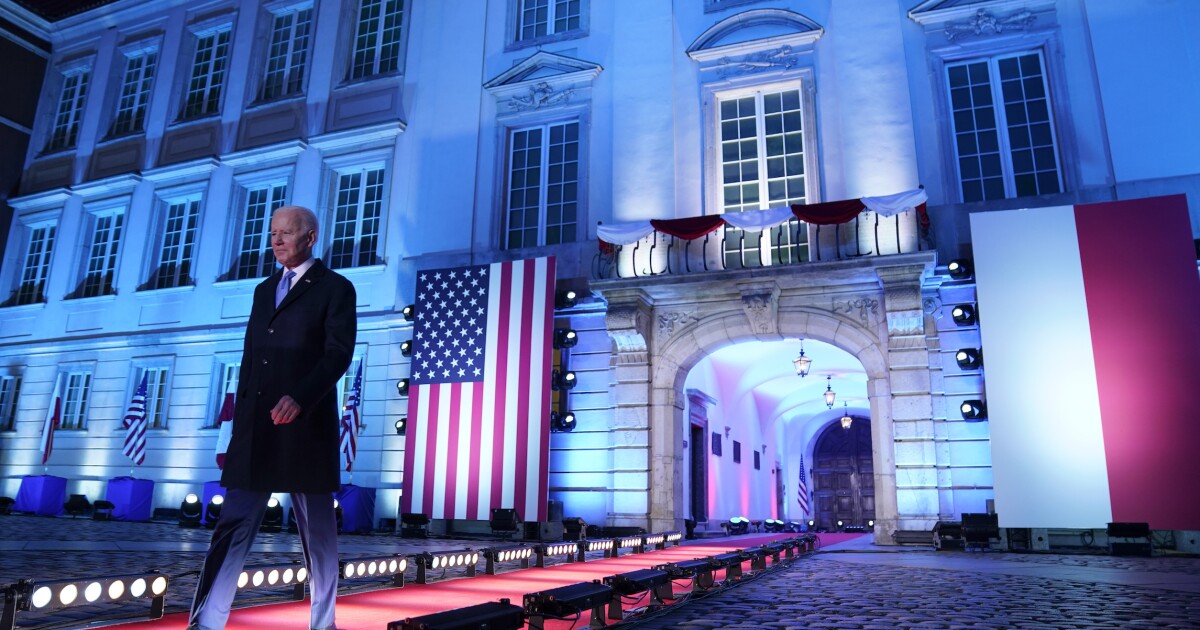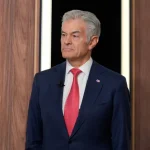

President Joe Biden has drawn praise for his handling of the war in Ukraine, with Kyiv embarking on a major military victory and looking to vanquish Russia for good as the region’s harsh winter approaches.
But questions remain about the ultimate objective both for Ukraine, the United States, and the wider West. The Biden administration still needs to define a sharper end goal for the public, according to some experts, and may need to convince skeptical conservatives the effort is worthwhile if the war continues to drag on.
WHITE HOUSE’S MESSAGE TO CHINA: ‘NOT THE TIME’ FOR HELPING PUTIN
“It hasn’t been said in awhile, but President Biden has done a really masterful job unifying the free world against Putin and helping to put Ukraine in a position to actually win this war,” talk radio host and former House member Joe Walsh tweeted on Sept. 9. “Thank you.”
The big news this past week was a major Ukrainian counteroffensive in the eastern part of the country, reportedly with deep involvement from the Pentagon, that appears to be a massive breakthrough in the otherwise grinding war. Forces recaptured nearly all of the Kharkiv province, with Russian forces reportedly fleeing to the southeast.
Russia still occupies several important cities, including Mariupol, Zaporizhzhia, Melitopol, and Kherson, and is receiving tacit support from China via its purchases of Russian energy. Yet even that support appears limited, as revealed during a recent meeting between Russian President Vladimir Putin and Chinese President Xi Jinping in Uzbekistan.
Putin acknowledged “questions and concerns” on the part of China, which was seen by some as an admission that the war is going badly for Russia and drawing skepticism from Chinese leadership.
“[China] clearly have chosen not to condemn that war in Ukraine, but we also haven’t seen, importantly — we haven’t seen them violate the sanctions or in any other way provide direct material assistance to Mr. Putin,” National Security Council coordinator John Kirby said during an appearance on CNN. “We haven’t seen the Chinese do anything overtly to support the effort by Mr. Putin inside Ukraine.”
But there are also questions about U.S. support for Ukraine and how long it may last. A handful of conservative groups have raised issues about the amount of aid flowing to the country. The White House’s most recent aid request was for $11.7 billion for security and economic assistance for the first quarter of 2023, plus another $2 billion to help reduce energy costs.
If approved by Congress, the total amount of aid would eclipse $67 billion. When a $40 billion plan was approved in May, 57 House Republicans and 11 GOP senators voted against it, though a majority of the party did vote in support.
Former Trump administration deputy national security adviser Victoria Coates said she supports the effort but would like to see more clarity from Biden on the big-picture objectives.
“What has been concerning to me from the beginning has been a lack of a strategy,” she said. “They are doing both sanctions and military support timidly and incrementally. The Ukrainians at this point feel like they can win this thing, and in my opinion, rather than doing this in dribs and drabs, they should design a program for victory.”
Coates, now a senior research fellow with the Heritage Foundation, said she wants to hear from the president what victory looks like and how America supports it.
“The war is taking a horrible toll, with food shortages, energy shortages, and price hikes,” she said. “Ending it should be the imperative.”
She is also concerned about oversight of Ukraine’s reconstruction once the war is over, fearing that Ukraine may be afforded significant American dollars that they will then give to Chinese companies to do the work.
However, it may be some time before such questions come to the forefront for the Biden administration, as there are many observers who still believe the war is going to drag on well into 2023.
CLICK HERE TO READ MORE FROM THE WASHINGTON EXAMINER
“What seems certain is that the war will go on for the foreseeable future,” tweeted Council on Foreign Relations President Richard Haass. “It is inconceivable that Putin will agree to Ukrainian demands, just as it is impossible to see Ukraine settling for much (if anything) less.”







